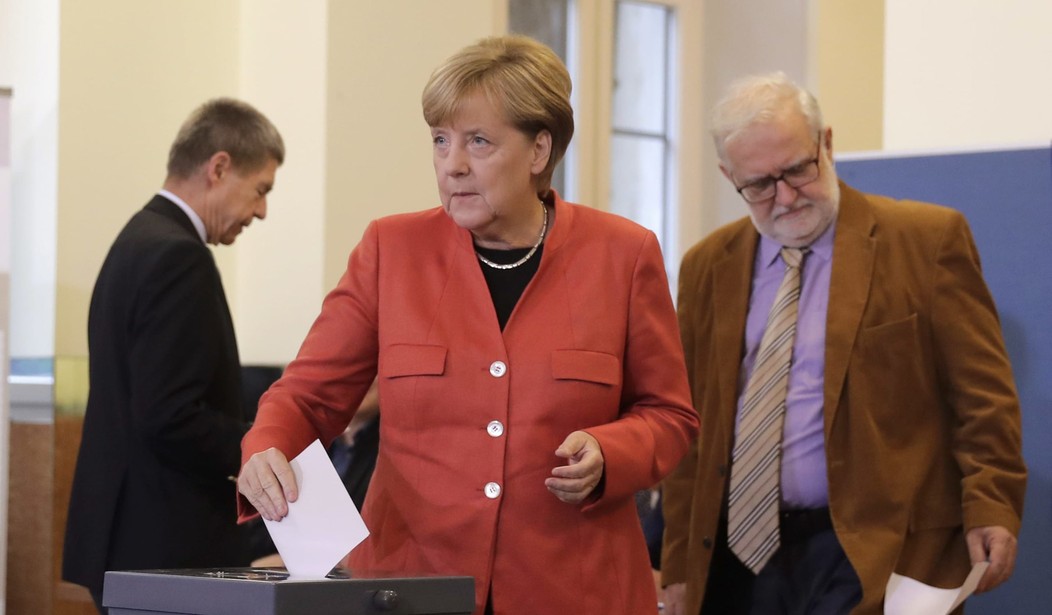Although Angela Merkel’s Christian Democrats once again became the biggest party in Germany’s parliamentary elections earlier this year, German voters are slowly but surely turning against the chancellor. The main reason seems to be her inability form a coalition government after the elections.
First, Merkel tried to form a coalition with the Greens and the classically liberal FDP. Those talks collapsed. Afterwards, Merkel went for a so-called Grand Coalition with the country’s largest opposition party, the Social Democrats. The Social Democrats, however, proved reluctant to form a government with her. Negotiations between the SDP and Merkel’s CDU will start in January, but it will take at least until Easter for the two parties to actually form a government. And even then it’s not exactly a sure thing that talks between the CDU and SPD will prove fruitful.
The result? According to a new YouGov poll, almost half (47 percent) of German voters believe it’s time for Merkel to go. Only 36 percent say they want her to start and finish her fourth term. Increasingly more voters seem to agree with FDP-leader Christian Lindner, who said that his party is only willing to restart negotiations with the CDU if that party replaces Merkel as its leader.
“Of course after 12 years in office, Mrs. Merkel doesn’t want to descend into contradicting her own actions,” Lindner said. “But we want to be a part of a renewal project.” For that, the FDP believes, the CDU needs a new leader and Germany a new chancellor.
As a result, it seems increasingly possible that Merkel will soon be replaced by someone else. The question, however, is: by whom? There is no one single out-and-out favorite. On the other hand, there are several younger CDU politicians with potential. Among them are Annegret Kramp-Karrenbauer, who led the CDU to victory in Saarland; 44-year-old Daniel Günther, who leads a coalition with the Greens and FDP in Schleswig-Holstein; and 37-year-old Jens Spahn, a state secretary in the Finance Ministry.
Whoever ends up succeeding Merkel, however, it’s becoming increasingly clear that Merkel’s time as Germany’s chancellor is nearing its end. If that doesn’t brighten your day, I don’t know what will.









Join the conversation as a VIP Member